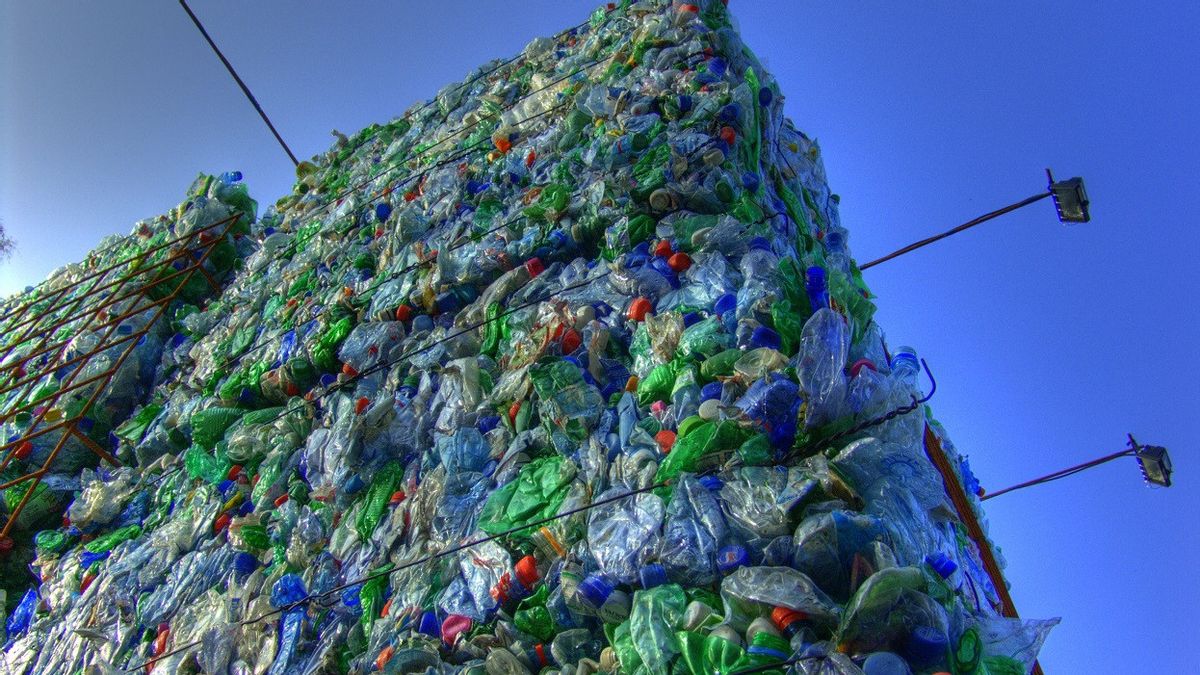JAKARTA - Researchers at Washington State University, United States (US) have developed a new method to convert plastic waste into jet fuel. The technique, detailed in the scientific journal 'Chem Catalyst' on June 17, could be adapted to convert plastic waste into a variety of highly sought-after hydrocarbon products.
Importantly, the conversion method is highly efficient, operates at moderate temperatures and converts nearly 90 percent of the input material. The technique is also fast, taking less than an hour from start to finish.
"In the recycling industry, recycling costs are key," said lead researcher Hongfei Lin in a statement citing the Korea Times.
"This work is a milestone for us to advance this new technology for commercialization," said Lin, who is a professor of chemical engineering at Washington State University.

The buildup of plastic waste in ecosystems around the world remains one of the most pressing environmental problems today.
When larger pieces of plastic waste such as bags, bottles and synthetic clothing break down, these small pieces of plastic, or microplastics can be filtered into bodies of water or blown into the atmosphere and deposited in distant places.
Research shows tiny bits of plastic are consumed by corals and mollusks, and even ingested by deep-sea creatures that live several thousand feet below sea level. When plastic is thrown away instead of being recycled, it is doubly damaging to the environment.
In addition to causing direct ecological damage, discarded plastic ensures that new plastics must be created to meet commercial demand and that plastic production remains a carbon-intensive process.
Turning plastic waste into usable products can help reduce the plastics industry's carbon footprint.

Typically, recycled plastic is simply melted and reshaped, but the recycling process reduces the quality and structural integrity of the plastic.
Plastic waste can also be converted into usable chemicals, but current conversion methods are too expensive and require a lot of energy. As a result, only 9 percent of plastic waste is recycled in the United States.
In the laboratory, scientists use ruthenium in carbon catalysts and common solvents to trigger the depolymerization process and turn plastic waste into components used to make jet fuel.
The conversion technique works at a temperature of about 428 degrees Fahrenheit, much lower than the temperature used for other conversion methods.
"Before the experiment, we only speculated but didn't know if it would work. (Turns out) the results were very good," said Lin.
The researchers show that by changing the conversion time and temperature, or the amount of catalyst used, they can fine-tune the process to produce the desired plastic-derived material.
"Depending on the market, they can customize what product they want to produce. They have flexibility. The application of this efficient process can provide a promising approach to selectively produce high-value products from polyethylene waste," concluded Lin.
The English, Chinese, Japanese, Arabic, and French versions are automatically generated by the AI. So there may still be inaccuracies in translating, please always see Indonesian as our main language. (system supported by DigitalSiber.id)













